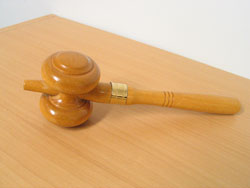
Top stories






More news
















Millions of people throughout the world relied on Al Jazeera's coverage of the events of 2011, then called the "Arab Spring", to follow what was unfolding in North Africa. While CNN and BBC World offered comprehensive coverage, as a TV channel from the region that would not be required to clear cultural and linguistic hurdles, international audiences tended to regard Al Jazeera as more authoritative.
In London on Monday, Andrew Coulson, a former editor of Rupert Murdoch's News of the World and more recently UK Prime Minister David Cameron's spin-doctor, was in court with two others for a sentencing hearing arising from the phone-hacking scandal exposed by the Guardian.
Unlike their counterparts in Egypt, Coulson and his colleagues had the benefit of the UK's legal system - due process, legal defence, and trial by a jury of their fellow citizens. Their reasonable doubt about Coulson's culpability on one of the charges persuaded the jury to find him not guilty.
Operating within two diametrically different legal systems, the issues that landed both groups of journalists in court were remarkably similar.
Egypt's military junta alleged that Peter Greste, Mohamed Fahmy and Baher Mohammed had deliberately promoted the cause of the Muslim Brotherhood in their coverage of the events leading up to Abdel Fattah al-Sisi's coup in July last year. The Muslim Brotherhood was a perfectly legal movement that had in fact won the majority of seats in Egypt's first democratic general election earlier that year. However, because the junta declared it illegal, labelling it a terrorist organisation, the three journalists were charged with promoting terrorism. The most elementary principles of natural justice make these charges patently absurd. Yet the Egyptian authorities not only arrested, detained without trial, but tried and convicted three people who were merely doing their jobs.
For a government like that installed after the July coup, the uncomfortable truths depicted in images and sound by Al Jazeera were indeed dangerous. By telling the world what was happening in Egypt and offering the officials of the elected government a platform to air their views, Al Jazeera did undermine the authority of the men in uniform. To a military dictator such as al-Sisi, that was tantamount to treason.
The importance of media, untrammelled by the impositions of either clerical or secular authorities, is that it arms the citizenry with the information that enables them to make intelligent choices. The media can also cast a critical eye on the various sites of power in society, not least government.
These two court cases, in totally different legal environments, nonetheless bring into relief one of the dilemmas any democracy has to contend with. Clearly, the editors, journalists and probably the management of Murdoch's media empire conflated the public's desire to know with its right to know. Yet the two are entirely different.
The News of the World had been at the top of the UK's tabloid food chain for 165 years, making handsome profits by publishing scandalous stories about the powerful, the famous, the notorious and celebrities.
In court, crown prosecutor Andrew Edis denounced the News of the World under Coulson's stewardship as "a thoroughly criminal enterprise". His team, Edis said, had "thoroughly corrupted" their newspaper and caused grief to hundreds of innocent people whose privacy they had violated.
Sound democracies usually are pluralist societies. Democratic institutions are designed to resolve the tensions that inevitably arise among stakeholders without recourse to violence. There will always be some tension between those in government, as a central site of power, and the others, including the media. That need not be cause for alarm provided the government's actions conform to democratic norms and values.
Coulson's trial revealed the unsavoury underside of tabloid journalism. Media freedom clearly is not a bed of roses. It requires not only a commitment to telling the truth, but also adherence to certain standards of common decency that respect the private space of others.
Source: Business Day, via I-Net Bridge

For more than two decades, I-Net Bridge has been one of South Africa’s preferred electronic providers of innovative solutions, data of the highest calibre, reliable platforms and excellent supporting systems. Our products include workstations, web applications and data feeds packaged with in-depth news and powerful analytical tools empowering clients to make meaningful decisions.
We pride ourselves on our wide variety of in-house skills, encompassing multiple platforms and applications. These skills enable us to not only function as a first class facility, but also design, implement and support all our client needs at a level that confirms I-Net Bridge a leader in its field.
Go to: http://www.inet.co.za